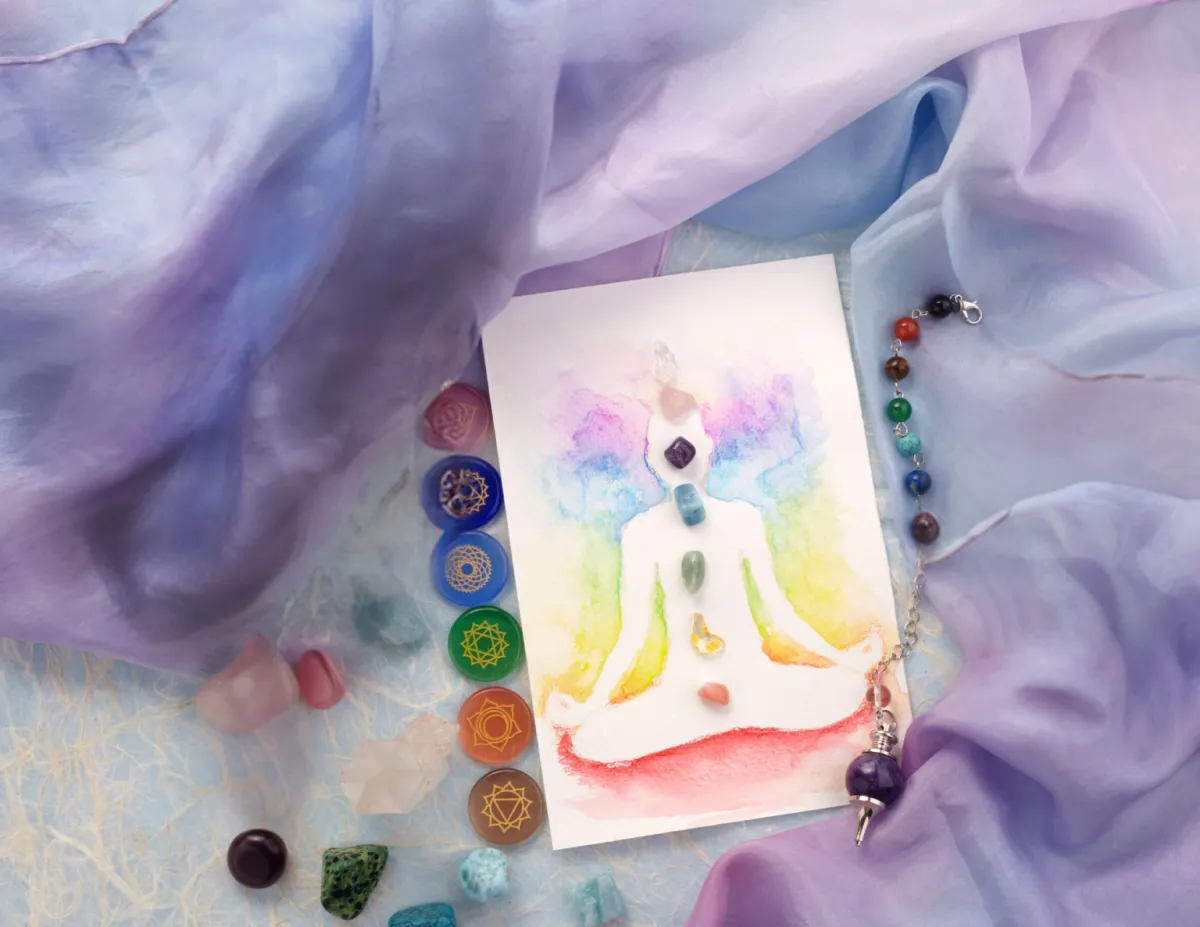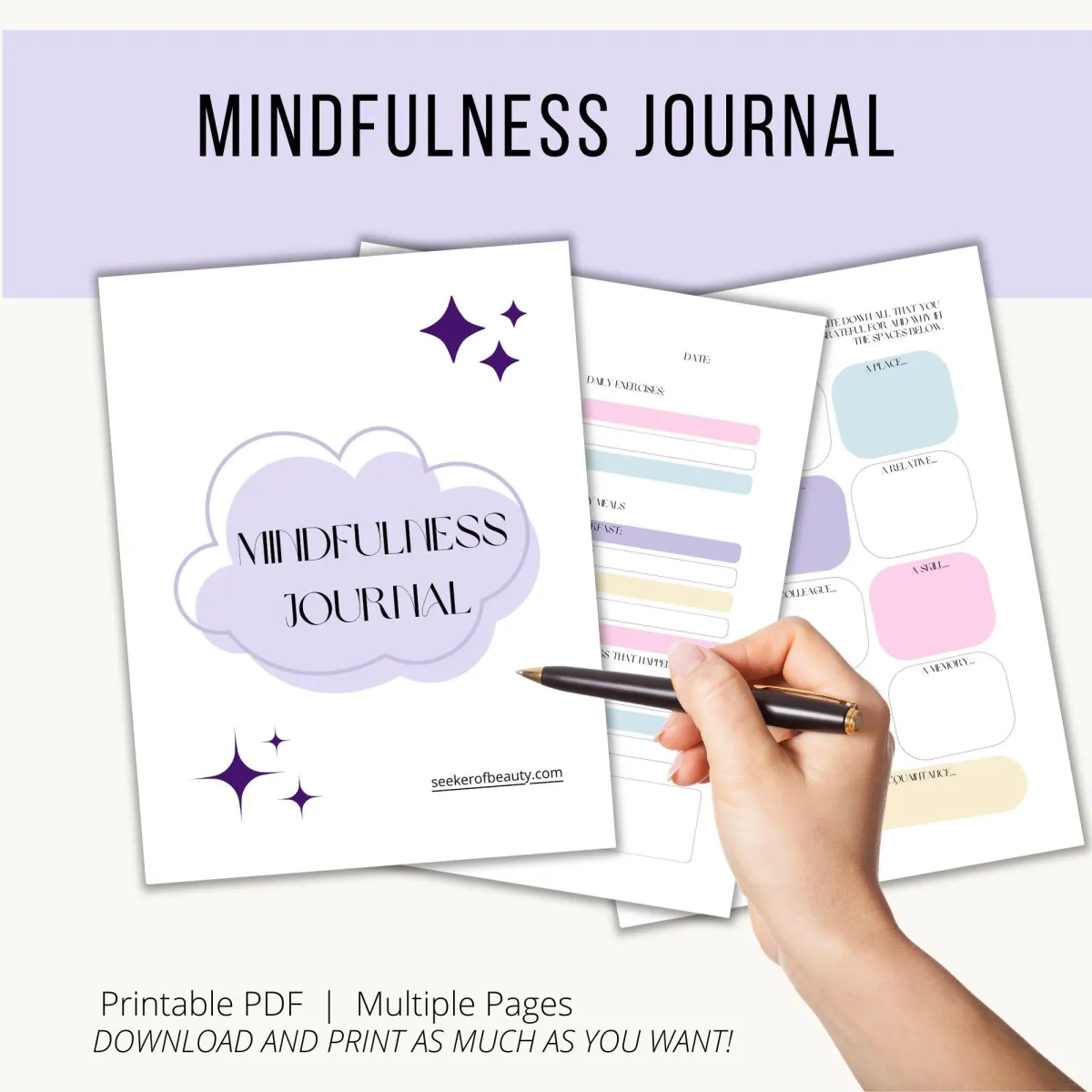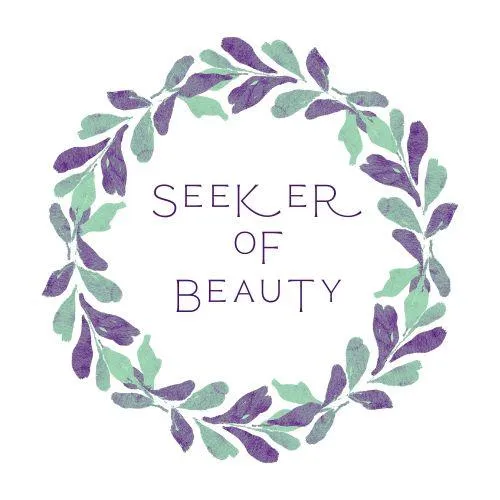
Chakra Essential Oil Guide
The chakras are energy centers in the body that are believed to influence our physical, emotional, and spiritual well-being. The concept of chakras comes from ancient Indian spiritual traditions, where it’s believed that there are seven major energy centers in the body. Each chakra corresponds to different physical, emotional, and spiritual aspects. Essential oils are sometimes used in practices like aromatherapy to help balance and align these energy centers. Essential oils are concentrated extracts of plants that have a powerful aroma and therapeutic properties. Certain essential oils are believed to resonate with the frequency of each chakra, and can be used to balance and heal them.
Here are some essential oils commonly associated with each chakra:
Root Chakra (Muladhara):
Location: Base of the spine
Associated with: Stability, security, survival
Essential Oils: Patchouli, Cedarwood, Vetiver, Frankincense, Sandalwood, Myrrh
Sacral Chakra (Svadhisthana):
Location: Lower abdomen, about two inches below the navel
Associated with: Creativity, sexuality, emotions
Essential Oils: Orange, Ylang Ylang, Jasmine, Clary Sage
Solar Plexus Chakra (Manipura):
Location: Upper abdomen, around the stomach area
Associated with: Personal power, confidence, self-esteem
Essential Oils: Lemon, Ginger, Bergamot, Peppermint, Rosemary
Heart Chakra (Anahata):
Location: Center of the chest, over the heart
Associated with: Love, compassion, forgiveness
Essential Oils: Rose, Lavender, Geranium, Bergamot, Copaiba
Throat Chakra (Vishuddha):
Location: Throat area
Associated with: Communication, expression, truth
Essential Oils: Chamomile, Lavender, Spearmint, Sage, Juniper
Third Eye Chakra (Ajna):
Location: Center of the forehead, just above the eyebrows
Associated with: Intuition, insight, wisdom
Essential Oils: Lavender, Clary Sage, Juniper, Rosemary, Frankincense
Crown Chakra (Sahasrara):
Location: Top of the head
Associated with: Spirituality, enlightenment, connection to the divine
Essential Oils: Frankincense, Myrrh, Sandalwood, Lavender, Neroli

Different Ways To Use Essential Oils
There are many ways to use essential oils for chakra balancing. One simple way is to add a few drops of your chosen oil to a diffuser and inhale the aroma. You can also apply the oil to your pulse points, such as your wrists and temples, or massage it into your chakras.
It is important to note that essential oils are very potent and should be used with caution. Always dilute essential oils with a carrier oil, such as jojoba oil or almond oil, before applying them to your skin. You should also avoid using essential oils near your eyes or mouth.
If you are new to using essential oils, it is a good idea to consult with a qualified aromatherapist to learn more about the safest and most effective ways to use them.
Here are some specific examples of how to use essential oils for chakra balancing:
Root chakra: Ground yourself with the root chakra by massaging a blend of patchouli, vetiver, and sandalwood essential oils into your feet and lower back.
Sacral chakra: Stimulate your creativity and sensuality by inhaling the aroma of ylang-ylang, jasmine, or orange essential oil.
Solar plexus chakra: Boost your confidence and willpower by applying peppermint or lemon essential oil to your solar plexus chakra, which is located just below your sternum.
Heart chakra: Open your heart to love and compassion by meditating with the aroma of rose or geranium essential oil.
Throat chakra: Enhance your communication and self-expression by applying chamomile or sage essential oil to your throat chakra.
Third eye chakra: Boost your intuition and creativity by massaging lavender or rosemary essential oil into your forehead and temples.
Crown chakra: Connect with your higher self and spiritual purpose by meditating with the aroma of frankincense or neroli essential oil.
Conclusion
It’s important to note that while essential oils can be used as a complementary practice, they should not be a replacement for any necessary medical or psychological treatment. Additionally, individual experiences with essential oils can vary, so it’s a good idea to experiment and find what works best for you personally.

Free Mindfulness Journal
© 2024 Seeker of Beauty built by
sweetsallysscents


Facebook
Instagram